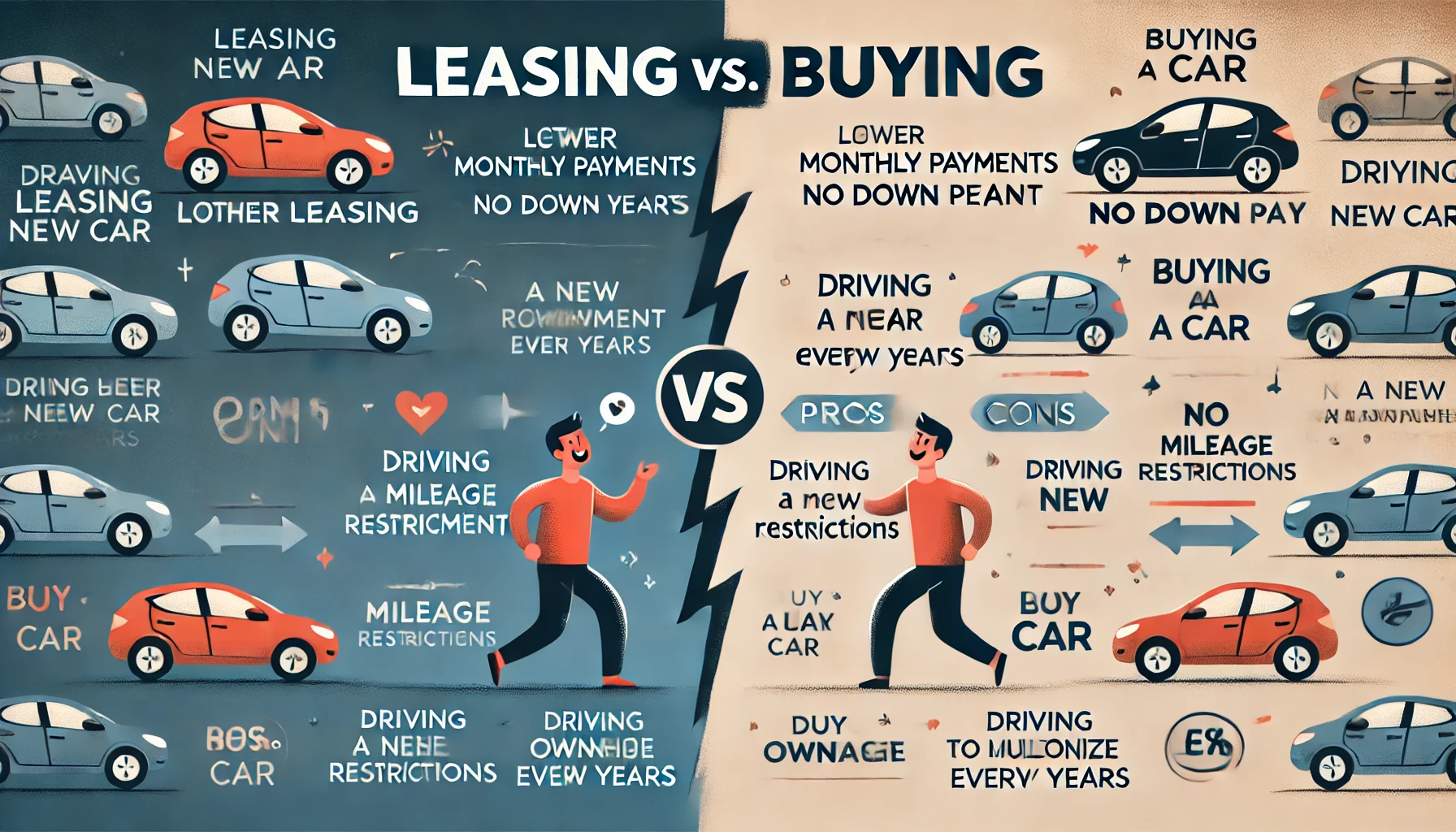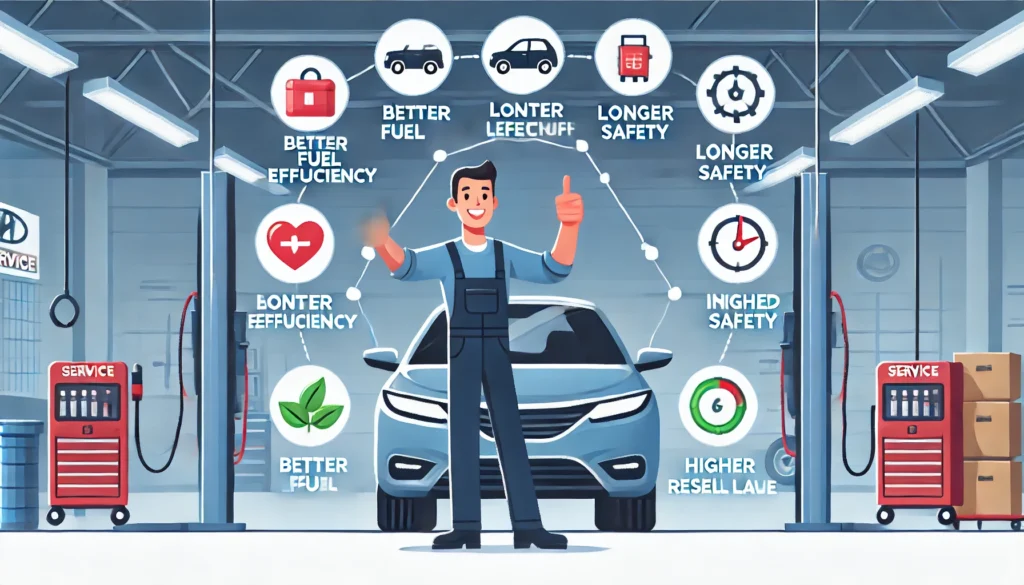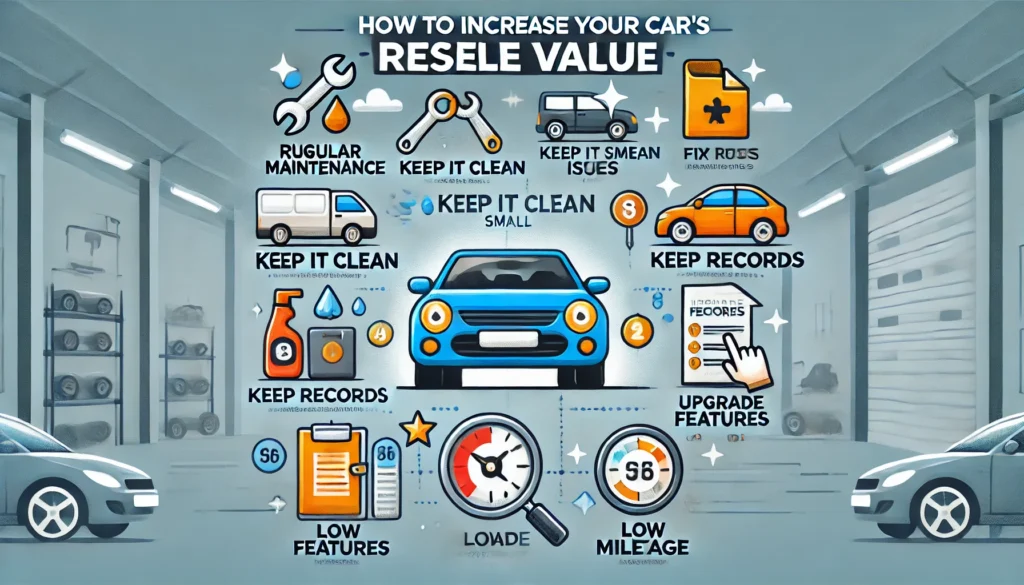Introduction
Deciding whether to Leasing Benefits or buy a car is a big financial choice that many people face. Both options have their advantages and disadvantages, and what works best for one person may not be the best for another. In this guide, we’ll break down the pros and cons of leasing versus buying a car to help you make an informed decision that suits your lifestyle and financial situation.
Leasing Benefits a Car
What is Car Leasing?
Car leasing is essentially a long-term rental agreement. You get to drive a new car for a specified period, typically two to four years, while making monthly payments. At the end of the lease term, you return the car to the dealership.
Pros of Leasing a Car
Lower Monthly Payments
Leasing Benefits a auto car often means lower monthly payments compared to buying. This is because you’re only paying for the car’s depreciation during the lease term, not its full value.
Driving a New Car
Leasing Benefits allows you to drive a new car every few years. This means you get the latest features, technology, and safety advancements without committing to long-term ownership.
Less Maintenance Hassle
New cars generally come with warranties that cover most repairs and maintenance. Since leases typically last about the same length as the warranty, you avoid significant repair costs.
Smaller Down Payment
Leases usually require a lower down payment than buying. This makes getting into a new car more affordable upfront.
Cons of Leasing Benefits a Car
No Ownership
When you lease a car, you don’t own it. This means you build no equity, and at the end of the lease, you have no car and must start over with a new lease or purchase.
Mileage Restrictions
Leases come with mileage limits, usually between 10,000 to 15,000 miles per year. Exceeding these limits can result in hefty fees.
Long-Term Costs
While monthly payments might be lower, Leasing Benefits can be more expensive in the long run if you lease continuously because you’re always making payments and never owning anything.
Customization Limits
Leased cars need to be returned in good condition. This means you can’t make major modifications or customizations without risking additional charges.
Buying a Car
What Does Buying a Car Involve?
Buying a car involves either paying the full price upfront or financing the purchase through a loan. You make monthly payments until the loan is paid off, after which you own the car outright.
Pros of Buying a Car
Ownership
Once you’ve paid off the loan, the car is yours. You can keep it as long as you want and build equity in it over time.
No Mileage Limits
When you own a car, you can drive as much as you want without worrying about mileage restrictions or penalties.
Freedom to Customize
Car owners have the freedom to modify and customize their vehicle as they see fit, adding personal touches and upgrades.
Long-Term Savings
In the long run, buying a car can be cheaper than leasing. After the loan is paid off, you have no more monthly payments, and you can continue driving the car for years.
Cons of Buying a Car
Higher Monthly Payments
Monthly payments for a car loan are usually higher than lease payments since you’re paying off the entire value of the car, not just its depreciation.
Depreciation
Cars depreciate in value over time. When you buy a car, you bear the full brunt of this depreciation, which can be steep in the first few years.
Maintenance Costs
As the car ages, you’ll be responsible for maintenance and repair costs, which can add up, especially once the warranty expires.
Larger Down Payment
Buying a car often requires a larger down payment than leasing, which can be a financial burden.
Financial Considerations
Initial Costs
Leasing
- Lower down payment
- Potential lower upfront costs
Buying
- Higher down payment
- Larger initial financial commitment
Monthly Payments
Leasing
- Generally lower monthly payments
Buying
- Higher monthly payments due to financing the full value of the car
Long-Term Costs
Leasing
- Continuous monthly payments if you keep Leasing Benefits new cars
Buying
- Monthly payments end once the loan is paid off
- Potential for lower long-term costs
Resale Value
Leasing
- No need to worry about the car’s resale value
Buying
- You can sell the car and recover some of the cost
- Depreciation affects the resale value
Lifestyle Considerations
Driving Habits
Leasing
- Ideal for those who drive less and can stay within mileage limits
Buying
- Better for high-mileage drivers who need flexibility
Car Preferences
Leasing
- Good for those who like driving the latest models with the newest features
Buying
- Suitable for those who prefer long-term relationships with their cars
Maintenance and Care
Leasing
- Typically less maintenance responsibility due to shorter term and warranty coverage
Buying
- Full responsibility for maintenance and repairs, especially as the car ages
End of Term Considerations
Leasing
- Return the car to the dealership
- Potential for excess wear and tear charges
- Opportunity to lease a new car
Buying
- Own the car outright after loan repayment
- Option to sell or trade in the car
- No ongoing monthly payments
Impact on Credit
Leasing
- Regular, on-time lease payments can positively impact your credit score
- Missing payments can negatively affect your credit
Buying
- Car loans also build credit if payments are made on time
- Failure to make payments can damage your credit score
Tax Benefits
Leasing
- Potential tax deductions for business use
- Lower sales tax since it’s based on lease payments
Buying
- Potential tax deductions for business use
- Sales tax paid upfront on the entire car value
Environmental Considerations
Leasing
- Frequent access to newer, more fuel-efficient, and environmentally friendly models
Buying
- Possible to keep an older car longer, which may not be as fuel-efficient
Insurance Costs
Leasing
- Often higher due to lease requirements for full coverage
Buying
- Can be adjusted to meet personal needs and budgets
FAQs
What are the benefits of Leasing Benefits a car?
Leasing Benefits a car offers lower monthly payments, the chance to drive a new car every few years, and fewer worries about maintenance since new cars are usually under warranty.
Are there any downsides to leasing a car?
Yes, Leasing Benefits has drawbacks like no ownership at the end of the term, mileage restrictions, long-term costs if you keep leasing, and limits on customization.
Why might buying a car be better than Leasing Benefits?
Buying a car can be better because you own it once the loan is paid off, there are no mileage limits, you can customize it as you like, and it can be more cost-effective in the long run.
What are the disadvantages of buying a car?
Disadvantages of buying include higher monthly payments, bearing the full depreciation, increased maintenance costs over time, and the need for a larger down payment.
How do initial costs compare between leasing and buying?
Leasing generally requires a lower down payment and has lower initial costs compared to buying, which typically involves a larger down payment and higher initial financial commitment.
Can Leasing Benefits or buying a car impact my credit score?
Yes, both Leasing Benefits and buying can impact your credit score. Regular, on-time payments for either a lease or a loan can improve your credit, while missed payments can negatively affect it.
Conclusion
Choosing between leasing and buying a car depends on your financial situation, driving habits, and personal preferences. Leasing Benefits offers lower monthly payments, the joy of driving a new car every few years, and fewer maintenance concerns. However, it comes with no ownership, mileage limits, and long-term costs. Buying, on the other hand, means ownership, no mileage limits, and long-term savings once the loan is paid off, but it requires higher monthly payments and involves higher maintenance costs over time.
Carefully consider your lifestyle, financial health, and what you value most in a vehicle. By weighing the pros and cons of each option, you can make the best decision for your needs.


